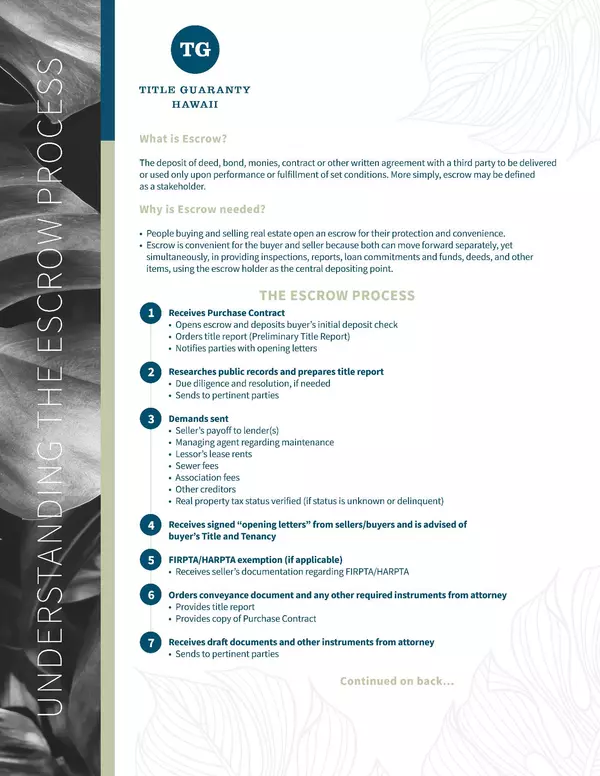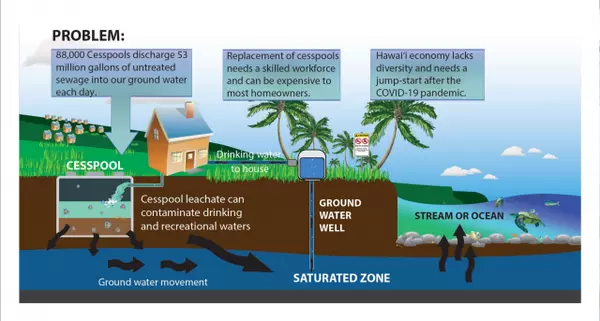Regular System vs Land Court: Understanding Property Ownership in Hawaii
Understanding Property Ownership in Hawaii: Regular System vs Land Court
In the Hawaiian real estate landscape, property ownership recognition operates under two distinct systems: the Regular System and Land Court. Each plays a unique role in shaping the way property ownership is determined and recorded in the state. This article dives into the nuances of both systems, highlighting their distinctive features and implications for property buyers in Hawaii.
Hawaii's Regular System: The "Race-Notice" Method
Commonly referred to as a "race-notice" system, the Regular System serves as the primary method for land registration in Hawaii. This system safeguards future property purchasers against previous claims that weren't filed with the Bureau of Conveyances. Essentially, if you buy a property with a clean title and a previously undisclosed party claims ownership, the Regular System provides protection. However, this system also allows for ANY document to be recorded against a property, regardless of the filer's legal interest. As such, issues like fraudulent deeds or unauthorized liens could arise, necessitating potential fixes.
The Regular System also handles the recording of Tax Liens and UCC (Uniform Commercial Code) Financing Statements unless the property falls under Land Court jurisdiction.
Land Court in Hawaii: The "Race" System
Land Court, alternatively known as the "Torrens" system, is a more selective land registration process. This system prioritizes the recording order, meaning a later interest can void a prior interest if recorded first.
Upon document acceptance by the Land Court Judge, the State of Hawaii issues a Certificate of Title under the landowner's name. This certificate documents any conditions affecting ownership, like mortgages, liens, judgements, or leases. Importantly, Land Court upholds strict document requirements and guarantees the land ownership as described in the certificate, providing an extra layer of security.
Furthermore, life events like marriages, divorces, name changes, or deaths are processed differently in Land Court compared to the Regular System. These updates require original documentation and are formalized through a petition to the Land Court.
Navigating Dual System Properties in Hawaii
Certain properties in Hawaii necessitate recording in both the Regular System and Land Court, referred to as Dual System properties. The process entails first recording in the Regular System, followed by Land Court for the issuance of the Certificate of Title.
The Importance of Specialized Legal Counsel in Hawaii
The intricacies of these systems underscore the importance of working with an attorney well-versed in Hawaiian real estate law. I strongly advise consulting a licensed real estate attorney in Hawaii, particularly when changes to the title of your property are desired. These professionals ensure that the correct system is employed and proper documentation is prepared, avoiding costly and time-consuming issues.
Navigating Property Ownership in Hawaii: Final Thoughts
Navigating property ownership in Hawaii might seem complex, but with the right understanding and legal guidance, it is manageable. As a potential buyer, stay educated, and when in doubt, consult a specialized attorney to ensure your most valuable asset's legal ownership is secured properly.
Remember, when it comes to the complex world of Hawaii's Regular System, Land Court, and Dual System, knowledge is power!
Categories
Recent Posts











